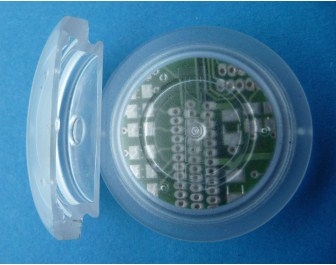A new plant using a new technology is being opened today by BASF to make its Neopor polystyrene insulating bead. Neopor is an EPS bead that incorporates graphite particles to enable moulded insulation panels to reflect heat. Until now it has been made in a suspension process, but the new plant uses an extrusion process which BASF says gives a more uniformly sized granule. This has benefits in enabling processors to define panel properties such as compression resistance.
The reflectivity of Neopor gives it a 20 per cent better insulation capacity than Styropor EPS.
“Even though the global financial crisis has had a negative impact on the construction sector, the worldwide demand for energy-efficient products will continue to grow, particularly for retrofitting thermal insulation in old buildings as well as for cooling buildings,” said BASF plastics director Dr Martin Brudermüller. “We expect the global market for EPS in the construction sector to grow by about 5 per cent per year, a trend driven by energy prices that will rise over the long run and by statutory regulations.” In Germany, about 30 per cent of all EPS-based insulating materials are currently used in new buildings, while 70 per cent go into renovation projects. This is expected to rise to 75 per cent by 2012.
The new plant, at Luwigshafen in Germany, has an annual capacity of 90,000 tonnes.








